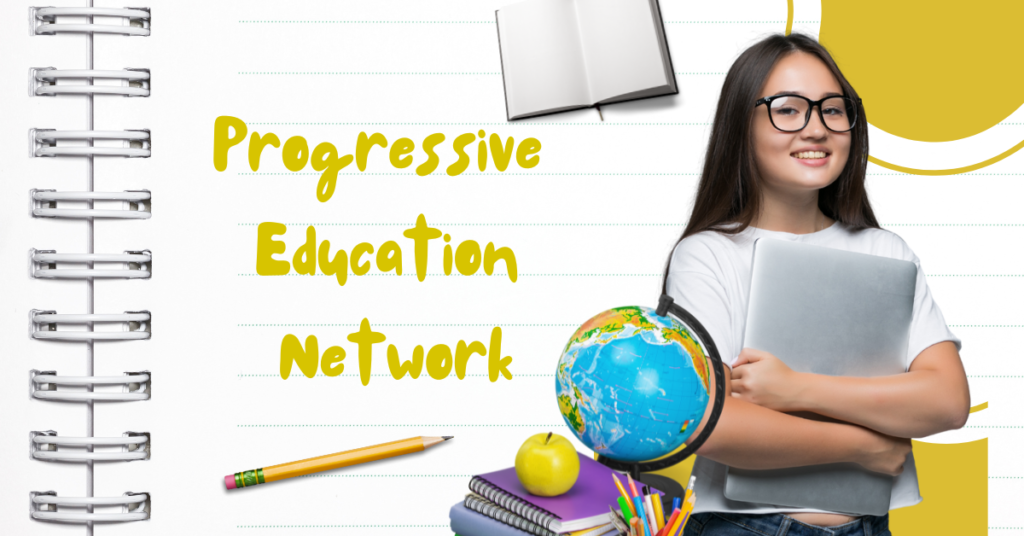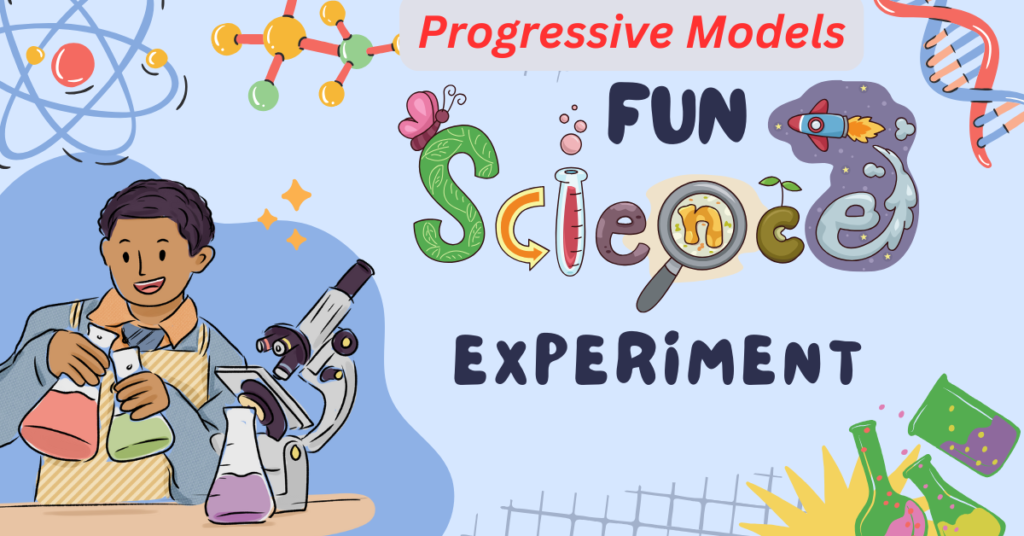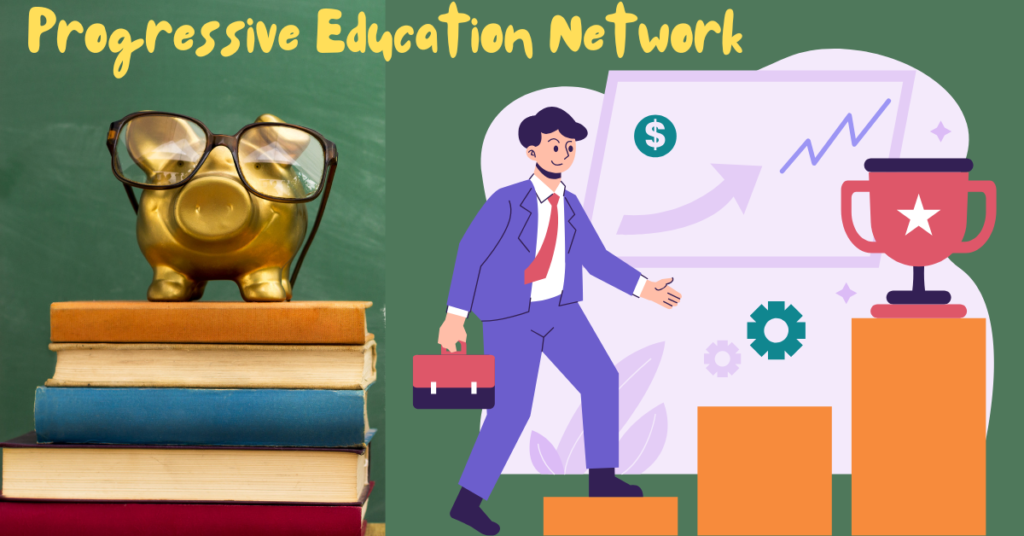Table of Contents
Introduction to Progressive Education Network
What Is Progressive Education Network Now?
Progressive Education Network Now is a philosophy that emphasizes active, experiential learning where students are empowered to think critically, explore their creativity, and engage with the world around them. Unlike traditional education models that often rely on rote memorization and standardized testing, progressive education focuses on the holistic development of the student, blending academics with emotional and social growth.
Progressive Education Network Now This approach values collaboration over competition and encourages students to become lifelong learners. It’s about fostering curiosity and adaptability, essential traits in an ever-evolving global landscape.
Historical Background and Evolution
The roots of progressive education trace back to the late 19th and early 20th centuries, largely influenced by thinkers like John Dewey. Dewey’s philosophy emphasized “learning by doing,” advocating for schools to be laboratories of democracy where children could experience the practical applications of knowledge.
Over time, Progressive Education Network Now expanded to address broader societal challenges, from promoting racial equity to incorporating digital learning tools. The movement continues to evolve, advocating for inclusivity and innovation in today’s complex educational landscape.

The Principles of Progressive Education Network
Focus on Holistic Learning
Progressive Education Network Now recognizes that students are more than just academic achievers—they are individuals with unique emotional, social, and physical needs. This model integrates various learning domains, ensuring students develop not just intellectual capabilities but also emotional intelligence and interpersonal skills.
By addressing the “whole child,” educators help foster resilience, empathy, and self-awareness, equipping students with the tools they need for success beyond the classroom.

Emphasis on Student-Centered Approaches
Progressive Education Network Now classroom, students take an active role in their learning journey. Teachers act as facilitators, guiding students to explore their interests and solve problems collaboratively. This approach contrasts starkly with traditional education, where teachers are often seen as the sole source of knowledge.
Student-centered learning helps cultivate intrinsic motivation and self-directed learning, empowering students to take ownership of their education.
Integration of Real-World Applications
One of the standout features of progressive education is its focus on real-world relevance. Lessons are designed to connect with everyday life, helping students see the practical applications of what they learn.
For instance, a math lesson might involve budgeting for a project, while a science class could address environmental sustainability challenges. This approach ensures that learning is not just theoretical but also meaningful and impactful.
Why the Progressive Education Network (PEN) Matters Today
Advocacy for Modern Education Reform
The Progressive Education Network serves as a voice for change, challenging outdated practices in schools and pushing for reforms that align with contemporary educational needs. PEN emphasizes creating equitable, inclusive, and engaging learning environments.
Connecting Educators for Best Practices
PEN provides a platform for educators to share insights, strategies, and success stories. This exchange of ideas not only fosters professional growth but also helps spread effective teaching methodologies across schools and communities.
Promoting Equity and Inclusion
At its core, PEN is committed to addressing systemic inequalities in education. By advocating for diversity and inclusion, the network ensures that every student, regardless of background, has access to a high-quality, enriching education.
Features and Activities of the Progressive Education Network Now
Professional Development Opportunities
PEN offers workshops, seminars, and webinars that help educators stay at the forefront of innovative teaching practices. Topics range from project-based learning to integrating technology effectively in the classroom.

Annual Conferences and Networking
The network organizes annual events where educators, policymakers, and researchers come together to exchange ideas. These conferences are invaluable for forming partnerships and staying informed about the latest trends in education.
Resources and Publications for Educators
Members of PEN have access to an extensive library of resources, including lesson plans, research papers, and case studies. These tools support teachers in implementing progressive principles in their classrooms.
Benefits of Joining the Progressive Education Network Now
Community and Collaboration
One of the most significant advantages of joining the Progressive Education Network Now (PEN) is becoming part of a vibrant community of like-minded educators and advocates. This network provides a platform where members can share challenges, successes, and innovative solutions.
Educators often face similar struggles, from engaging students to addressing systemic inequities. Through PEN, members gain access to a supportive environment that fosters collaboration, brainstorming, and the exchange of best practices.

Access to Innovative Tools and Strategies
PEN equips educators with cutting-edge tools and strategies to enhance their teaching methods. Whether it’s leveraging project-based learning techniques or integrating the latest technological advancements, members benefit from resources that help them stay ahead in the educational field.
This access ensures that teachers can provide students with a dynamic, engaging, and forward-thinking education.
Influence on Policy and Advocacy Efforts
Being part of PEN offers educators the chance to impact broader educational policies. The network advocates for progressive reforms at local, state, and national levels, giving members a collective voice to push for meaningful changes.
This involvement not only benefits individual educators but also contributes to creating a more equitable and inclusive educational landscape.
Challenges in Implementing Progressive Education Network Now
Resistance to Change in Traditional Systems
Change is never easy, especially within entrenched systems like education. Progressive education often faces pushback from stakeholders accustomed to traditional methods. Critics may question the effectiveness of experiential learning or resist shifting from standardized testing.
Educators advocating for progressive reforms must work to build trust, demonstrate the model’s benefits, and gradually shift perceptions through evidence and success stories.
Resource Allocation and Funding
Another significant challenge is securing the necessary resources to implement progressive education principles effectively. Schools may lack funding for updated materials, technology, or teacher training, which can hinder efforts to adopt new practices.
Partnerships with community organizations, grants, and government support are often vital to overcoming these obstacles.
Measuring Outcomes in Progressive Models
Unlike traditional education, which heavily relies on standardized tests to measure success, progressive education uses more holistic assessments. However, these can be harder to quantify, making it challenging to demonstrate effectiveness to policymakers and stakeholders.
Educators must develop innovative ways to track and communicate outcomes, ensuring they align with the expectations of the broader educational community.
Success Stories and Case Studies
Schools Embracing Progressive Models
Numerous schools have successfully adopted progressive education practices, serving as beacons for others. For instance, High Tech High in California uses project-based learning to engage students in real-world challenges, while The Wheeler School in Rhode Island emphasizes personalized, inquiry-driven learning.
These schools showcase how progressive principles can transform classrooms into vibrant, student-centered spaces that prioritize critical thinking and creativity.

Individual Educators Making a Difference
Progressive education isn’t limited to institutional reforms; individual educators often spearhead change. Teachers who adopt student-centered approaches in traditional settings often inspire colleagues and students alike.
Stories of teachers integrating local community issues into their curriculum or using innovative teaching methods highlight the adaptability and effectiveness of progressive education on a smaller scale.
The Future of Progressive Education Network Now
The Role of Technology
As technology continues to evolve, it presents both challenges and opportunities for progressive education. Tools like virtual reality, artificial intelligence, and online collaboration platforms can enhance experiential learning, making lessons more engaging and accessible.
For instance, students can participate in virtual field trips to historical sites or use AI-driven tools to explore complex topics at their own pace. Integrating technology thoughtfully can amplify the impact of progressive education.

Addressing Global Educational Needs
In an interconnected world, progressive education has the potential to address global challenges, from climate change to social justice. By fostering critical thinking, empathy, and collaboration, this model prepares students to become active participants in solving these pressing issues.
Progressive Education Network Now also promotes cross-cultural understanding, an essential skill in a globalized society. Schools can connect students worldwide, encouraging them to collaborate on projects and share perspectives.

How to Get Involved with the Progressive Education Network Now
Membership Details and Benefits
Joining PEN is straightforward, with membership options tailored to educators, schools, and organizations. Benefits include access to exclusive resources, discounts on events, and opportunities to collaborate with peers.
Members also receive updates on the latest research and developments in progressive education, ensuring they stay informed and inspired.
Volunteering and Contributions
PEN welcomes volunteers passionate about transforming education. From organizing events to contributing to publications, there are numerous ways to get involved.
Individuals and organizations can also support PEN’s initiatives through donations, helping the network expand its reach and impact.
Conclusion
Progressive education is more than just a teaching philosophy; it’s a movement towards a more inclusive, engaging, and meaningful approach to learning. The Progressive Education Network plays a vital role in advancing this vision, connecting educators, advocating for reforms, and providing resources that inspire change.
As education systems worldwide face unprecedented challenges, PEN’s mission has never been more relevant. By embracing progressive principles, we can empower students to thrive in an ever-changing world while building a more equitable future for all.
FAQs
What makes the Progressive Education Network unique?
The Progressive Education Network focuses on experiential, student-centered learning, emphasizing inclusivity, collaboration, and real-world applications. It connects educators globally to promote innovative teaching practices.
How can parents support progressive education?
Parents can advocate for progressive education by supporting schools that adopt these principles, engaging in school activities, and encouraging their children to think critically and creatively.
What types of schools are part of the Progressive Education Network?
PEN includes a diverse range of schools, from public and private institutions to charter and alternative learning environments, all dedicated to progressive principles.
Is progressive education suitable for all students?
Yes, progressive education adapts to meet individual student needs, making it suitable for diverse learners. Its flexibility ensures inclusivity and relevance across various backgrounds.
How does progressive education impact academic success?
Progressive education fosters deeper understanding, critical thinking, and real-world problem-solving skills, equipping students for long-term success beyond traditional academic metrics.

